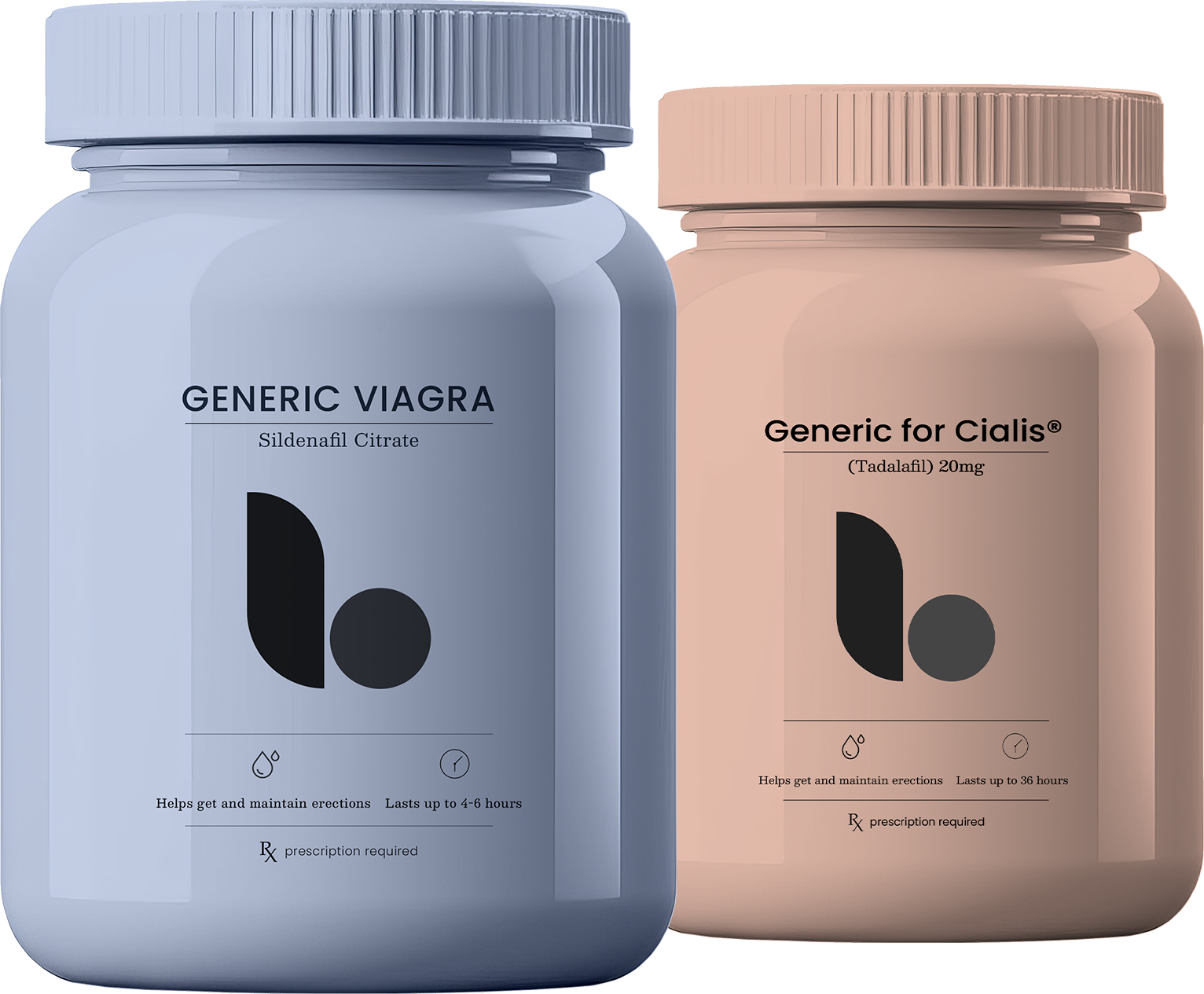In men’s sexual health, testosterone plays a key role in influencing sexual function and desire. This hormone is often discussed in erectile dysfunction (ED), sparking questions about whether low testosterone is a significant cause of ED. Let’s break down the complex connection between testosterone levels and erectile function to understand how this hormone impacts erections.
Understanding Testosterone: A Vital Hormone
Testosterone is the primary male sex hormone, produced mainly by the testes. While it is known for its role in puberty—causing body hair growth, voice deepening, and muscle development—it also plays a crucial role in cognitive functions and overall energy. Normal testosterone levels for men range from 300 to 1,000 ng/dL, with levels peaking around a man’s 30s. However, these levels naturally decline with age, leading to a decrease in testosterone as men grow older.
A significant drop in testosterone, known as low testosterone (low-T), is more common in older men, particularly those in their 60s and beyond. It’s less common in younger men, affecting only about 1% of men under 40.
Let’s Make Men’s Health Simple.
Connect with a US-licensed healthcare provider for a FREE Evaluation!
Your #1 Portal for Men’s Prescription Medication

Causes of Low Testosterone
Several factors contribute to low testosterone levels, including both medical conditions and lifestyle choices:
– Aging
– Obesity
Testicular injury
Metabolic syndrome
Chronic infections
Autoimmune diseases
– Genetic disorders (e.g., Klinefelter syndrome)
Medications (e.g., antidepressants, blood pressure medication)
Alcohol and opioid use
Symptoms and Risks of Low Testosterone (Hypogonadism)
When testosterone levels dip below normal, a condition called hypogonadism may develop. Symptoms of low testosterone include:
Decreased sexual drive
Low energy and fatigue
Reduced beard and body hair growth
Muscle loss
Mood swings, including depression
Difficulty concentrating
Increased body fat
In more severe cases, hypogonadism can lead to infertility, osteoporosis, and gynecomastia (breast tissue development). Erectile dysfunction is also a potential consequence.
Low Testosterone and Erectile Dysfunction: The Link
Contrary to popular belief, testosterone is not the sole determinant of erectile function. Erectile dysfunction is more often caused by vascular issues—problems with blood flow—than low testosterone. While testosterone is essential for maintaining sexual desire, it may not directly affect blood flow to the penile tissues.
It’s worth noting that several health conditions, such as heart disease, diabetes, and high blood pressure, can cause both low T and erectile dysfunction. In these cases, low testosterone is more of a secondary factor.
Dispelling Myths: Testosterone and ED
Many men believe that low testosterone is a direct cause of ED. However, research shows that only about 5% of erectile dysfunction cases are linked to low testosterone levels. Even as testosterone levels decline with age, they don’t necessarily fall low enough to cause erectile dysfunction.
In some cases of hypogonadism, testosterone therapy can help improve erectile function, especially when combined with medications like PDE5 inhibitors (e.g., Viagra). However, for most men, addressing underlying health issues like obesity or heart disease may be more effective than focusing solely on testosterone levels.
Testosterone and Penis Size
Testosterone is essential for the development of the penis and testicles during puberty. In cases of severe low T, men may notice reduced size in these areas, along with tissue shrinkage over time. However, this is more common in men with significantly low testosterone, such as those with untreated hypogonadism.
Treatment Options for Low Testosterone
If low testosterone is impacting sexual health, several approaches can help boost testosterone levels naturally:
Exercise: Regular physical activity can help stimulate hormone production.
Stress management: Reducing stress lowers cortisol levels, which can negatively affect testosterone.
Healthy weight: Maintaining a balanced body mass index (BMI) supports normal hormone levels.
Sleep: Quality sleep is crucial for testosterone production.
Diet: Foods rich in nutrients, such as leafy greens, fatty fish, and legumes, help maintain healthy testosterone levels.
Supplements: Nutrients like vitamin D, zinc, and magnesium can support hormone production.
Testosterone Replacement Therapy (TRT): For men with severe low T, TRT may be an option. However, TRT carries risks, including blood clots, cardiovascular problems, and prostate enlargement.
Let’s Make Men’s Health Simple.
Connect with a US-licensed healthcare provider for a FREE Evaluation!
Your #1 Portal for Men’s Prescription Medication

Conclusion: A Balanced View of Testosterone and ED
While testosterone plays a significant role in sexual desire, it may not be the primary cause of erectile dysfunction. ED is more often a result of poor blood flow or psychological factors. Although testosterone therapy may help some men with low testosterone, lifestyle changes and addressing underlying health conditions are often more effective in managing both testosterone levels and erectile dysfunction.
Understanding the nuances of testosterone’s role in sexual health helps in navigating potential treatments and setting realistic expectations.



